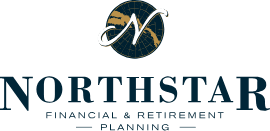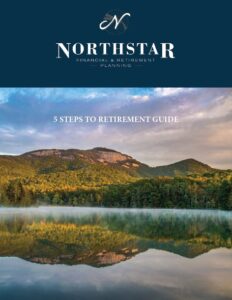Understand the “Dos” and “Don’ts” to Help Safeguard Your Retirement Future
The coronavirus, bear market, and recession struck the retirement dreams of millions of Americans like uncharted rocks in a turbulent sea. With no warning, strategies built on a decade of growth became outdated, leaving many current and future retirees wondering
“Am I going to be okay during retirement?”
The “fragile decade” is the first 5 years immediately before you retire, when you’re actively planning your retirement, and the 5 years immediately after. This timeframe is when economic uncertainty and market losses can hurt your retirement most
The choices you make during this 10-year span will have a major impact on the comfort and security of your retirement.
If you’re not confident that your retirement plan is on track to deliver the lifestyle you want amid historic levels of uncertainty – or even how to plan for your retirement during these uncertain times – you’re in the right place.
You might find yourself asking questions like:
- How does the crisis impact my cash flow?
- What will I do if another recession strikes?
- How do I prepare for years of uncertainty?
- What moves should I be making?
If so, keep reading…
How To Plan For Retirement In Volatile Times:
Do #1: Focus On What’s In Your Control
No one could have predicted the pandemic or the historic recession it caused. Attempting to predict the unpredictable or control the uncontrollable is a recipe for stress, frustration, and poor decision-making.
So what can we do?
Focus on what’s in our control: our mindset, our choices, and the decisions we make.
Are you mentally prepared? Can you say out loud “it’s ok to retire in a down economy?”
Critical planning questions you should ask:
- Am I mentally prepared for uncertainty that comes with volatility?
- Do I have a retirement plan that incorporates recessions, volatility, and bear markets?
- Am I confident in my ability to adapt to changing conditions?
- Have I created contingency plans for retiring early, retiring later, or a phased retirement?
- Have I discussed my goals, worries, and contingencies with my spouse/partner?
- Have I discussed my plans with a financial professional?
Do #2: Protect Your Retirement Cash Flow
How you plan for your retirement and your retirement lifestyle depends on your income strategy. Getting through volatile times is about having enough cash on hand while not robbing yourself of future growth. Aging is hard enough.
Is your lifestyle safe?
Critical planning questions you should ask:
- Do I have enough cash to avoid drawing down a portfolio that has lost value?
- Do I have enough guaranteed income?
- Have I optimized my Social Security strategy to potentially maximize my government- guaranteed income?
- Is my income flexible enough to adapt to volatile market conditions?
- Have I tested different portfolio scenarios to determine how much is “safe” to withdraw from my investments?
- Am I aware of advanced income strategies that may help shield income from downturns?
- Have I reviewed my income strategy to see if 2019 and 2020 government legislation affects me?
- Have I discussed my income strategy with a financial professional?
Do #3: Revisit Your Investments
Investing and planning for retirement in today’s markets is not set-it-and-forget-it. It’s a continual process of adapting to changing conditions and evaluating risk against opportunities. Getting it wrong can mean setting your retirement dreams back or cutting back on your lifestyle.
Are your investments positioned for volatile markets?
Critical planning questions you should ask:
- Is my investment strategy up-to- date for current conditions?
- Am I still on track for the retirement I want?
- Am I positioned to take advantage of the hidden opportunities volatility can offer?
- Am I protected against “sequence- of-returns” risk and the dangers of withdrawing too much from a portfolio that has lost value?
- Is my portfolio risk-adjusted for my age, goals, and “investing personality”?
- Are there advanced investment strategies I should be considering that may help mitigate the effects of volatility?
- Have I discussed my investment strategy with a financial professional?
The “Don’ts” of Retirement Planning During A Recession:
Don’t #1: Give in to Fear
Uncertainty with volatility can be scary. Especially when you’re navigating one of the biggest life transitions there is. But giving in to fear and making emotional decisions can be damaging to more than just your investments — the choices you make now can ripple through your entire retirement.
Are you at risk of making fear-based decisions?
Critical planning questions you should ask:
- Am I checking my investment account balances frequently?
- Do I have a clear, emotion-free decision-making strategy for my finances?
- Am I chasing trends and taking on too much risk?
- Am I taking on too little risk and risking future growth potential?
- Have I discussed my worries with a financial professional?
Don’t #2: Put Off Critical Decisions
Sometimes, sitting on the sidelines feels safest when uncertainty swirls around you. But, inaction can be the most dangerous “action” of all if it leaves you vulnerable to circumstances. If you’re close to or already in retirement, you don’t have the luxury of “waiting it out” or doing nothing.
Is your future at risk?
Critical retirement planning questions you should ask:
- Am I 100% confident that my retirement strategies can carry me through challenging conditions?
- Do I understand what I should be doing to help protect myself and my lifestyle from volatility?
- Has a financial professional reviewed my strategies within the last 12 months?
Feeling overwhelmed by retirement planning during an uncertain economy?
NorthStar Financial & Retirement Planning can help.
You’re not alone. Contact Us to set up a FREE Retirement Readiness Session to get answers to your urgent questions and clarity about the next steps you need to take to help safeguard your retirement.
We can help you create a road map for retirement.
We’re experiencing once-in-a-generation uncertainty and it’s okay not to have all the answers. What’s important is identifying the weaknesses in your plans and taking action to address them.
You’ve already made the decision to take control of your retirement despite the uncertainty. Just taking that step puts you much farther ahead than most people.
We can help you go from confusion to clarity with a step-by-step plan. It all starts with a free and confidential Retirement Readiness Session. You can book one by calling us at (864) 297-0762 or Email Us.
It’s ok to retire in volatile times.
Discover Your Risk Number® and Find Out If Your Current Investment Strategy Truly Reflects Your Risk Tolerance
Subjective risk questionnaires almost always miss the mark.
That’s because the old way of assessing risk, stereotyping investors into categories of “conservative,” “moderate,” or “aggressive,” simply doesn’t work — the spectrum of risk tolerance is far greater than just 3 black and white categories. This dated method forces investors into the “closest fit” instead of the right fit.
Did you know that humans are twice as concerned about avoiding losses as they are about achieving investing gains?
That means investment losses hurt a lot.
You’ve probably heard that the worst thing you can do during a downturn is sell, but did you know the psychology behind that impulse? It’s called loss aversion.
It’s one of the reasons why people can sabotage their investments by selling when they get scared, missing the recovery, and then buying back in once they feel “safe” again.
Understanding and leveraging human psychology is one of my most important jobs as a financial professional.
Our approach uses the Risk Number®, based on Nobel Prize-winning research. At NorthStar, together we can quantify how much risk you want, how much risk you currently have, how much risk you need to reach your goals, and how much risk you should take on.
Your Risk Number® is like a speed limit. Some people are comfortable driving fast while others want to go slower. Your individual result from 1-100 is neither good nor bad. 1= Least Risky, 100= Most Risky- will you be surprised by your number? How much risk would you like to have in your portfolio?
How do we use your Risk Number®?
We’ll review your existing portfolio and stress test it by simulating major market events and show you in dollars and cents just how your portfolio could have performed.
After you discover your Risk Number® and understand how it applies to your investment strategy, you’ll feel more confident understanding your investment choices.
Want to find out yours? It’s ok to retire in uncertain times.








